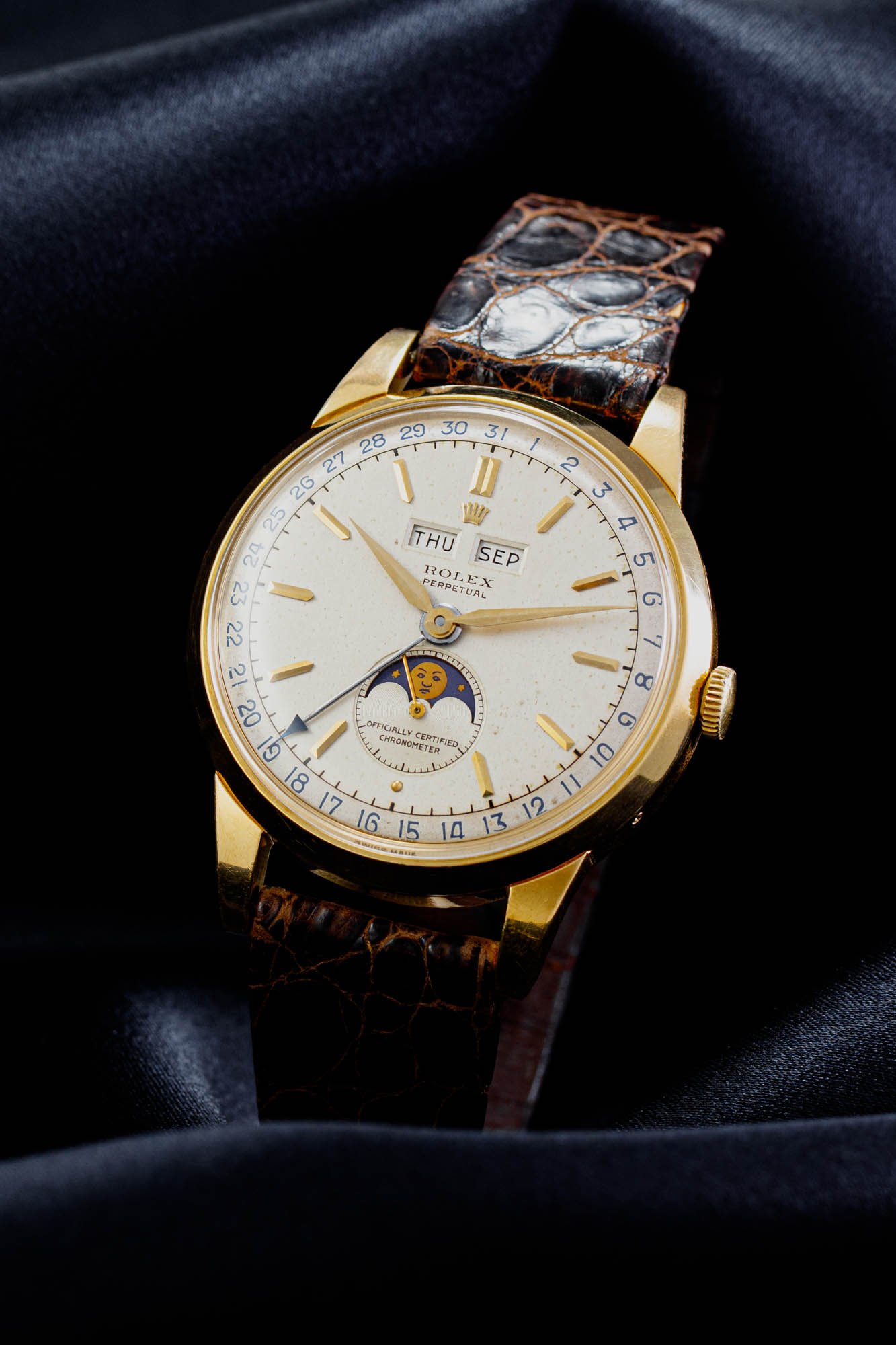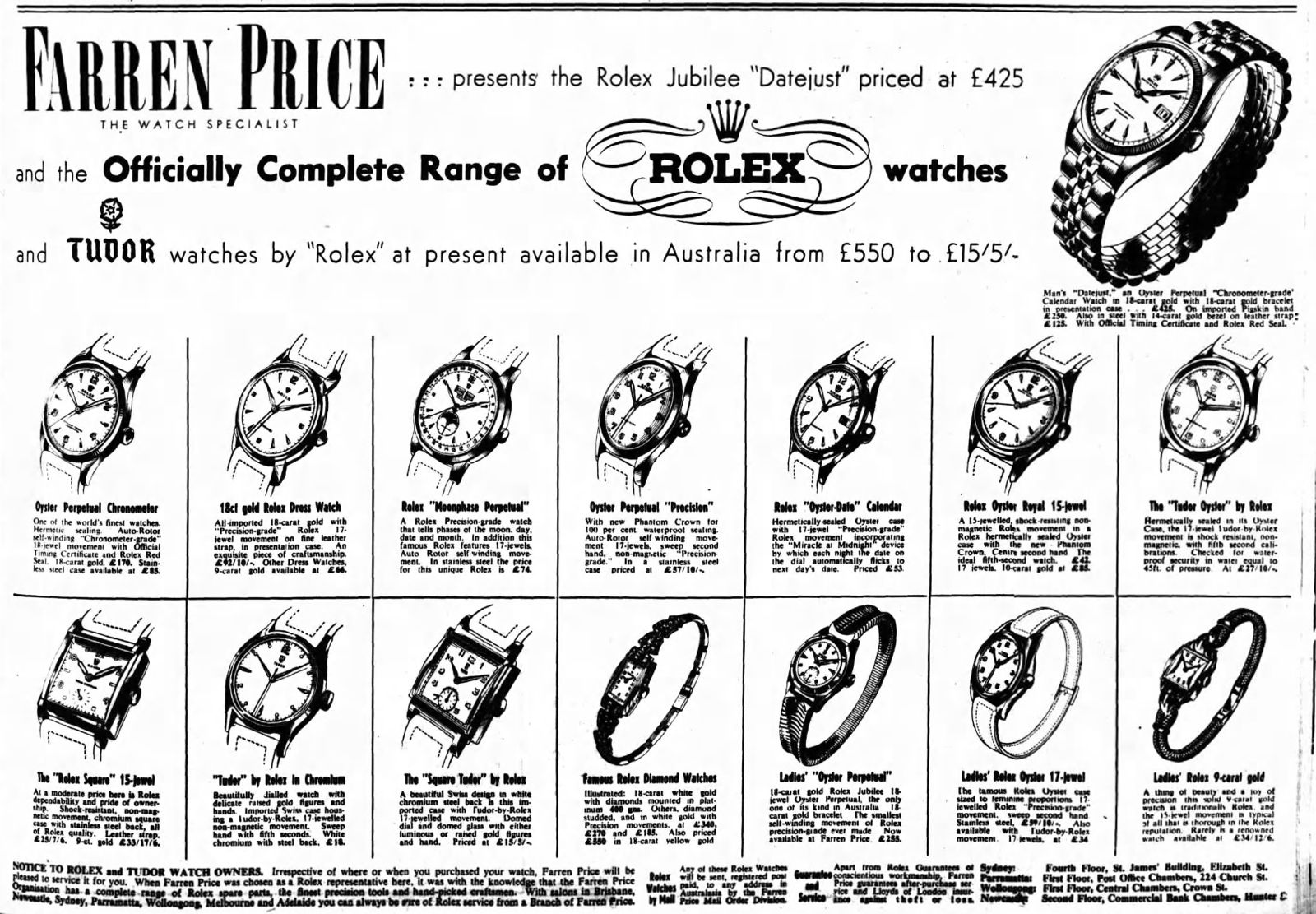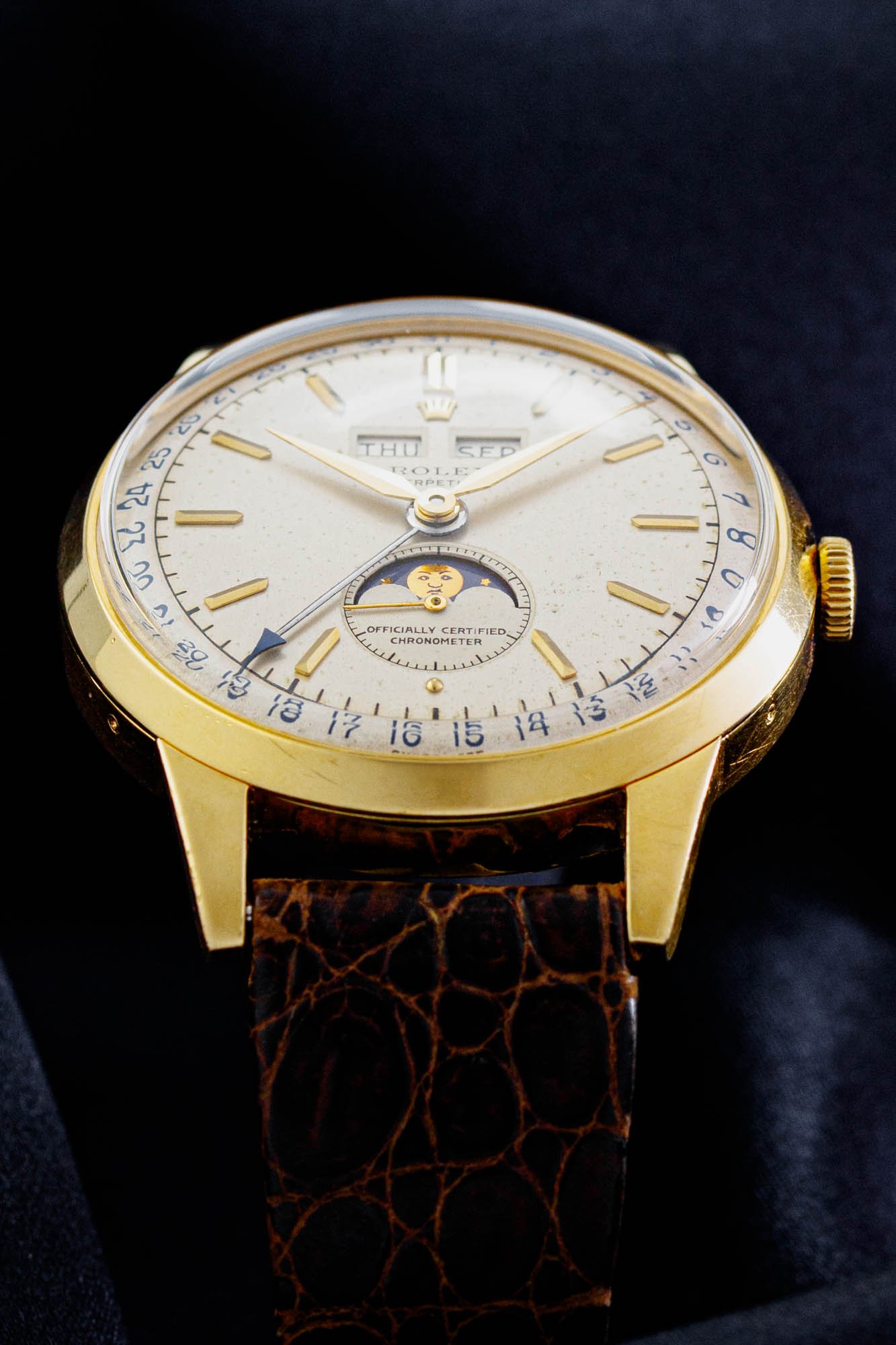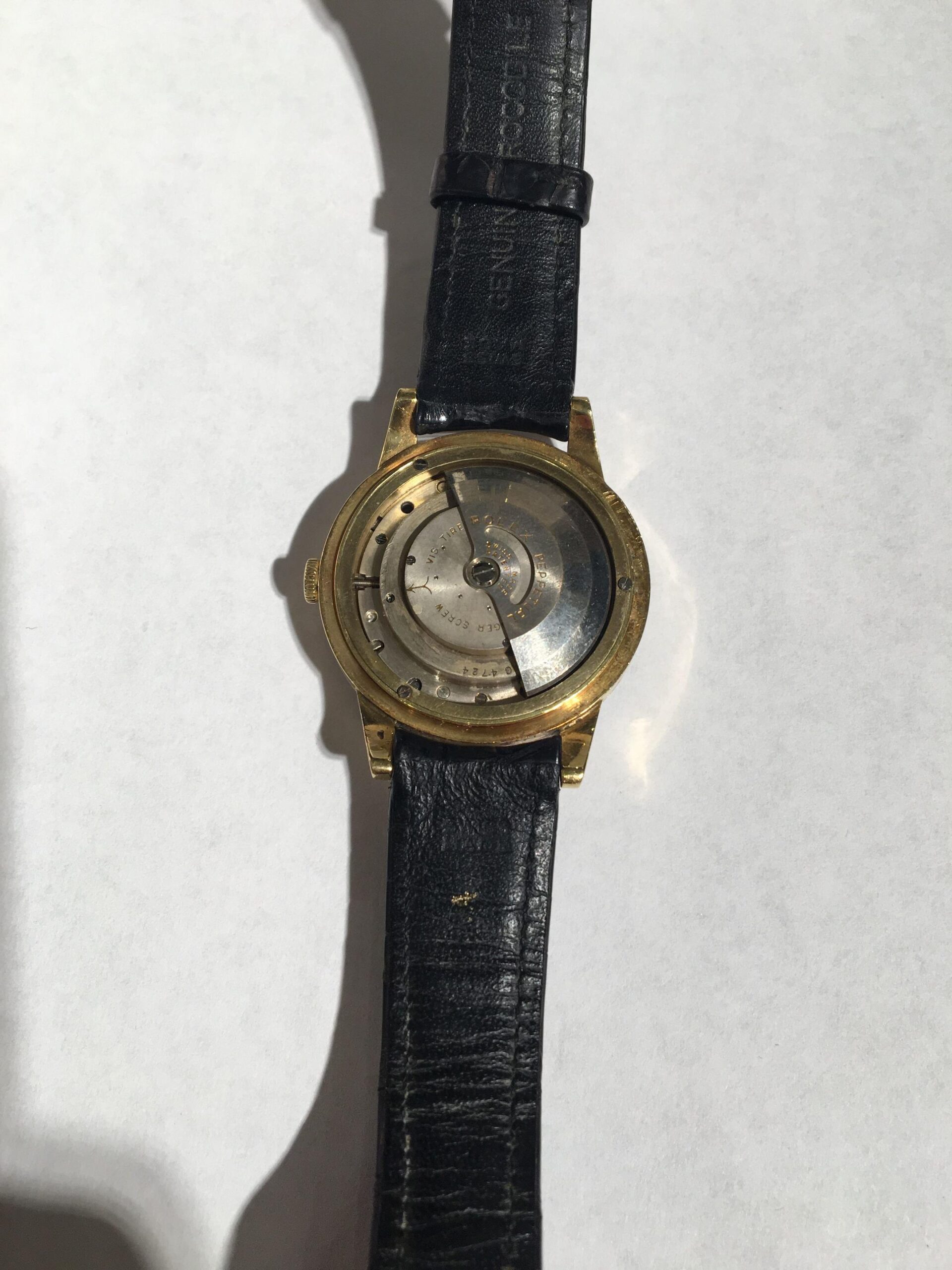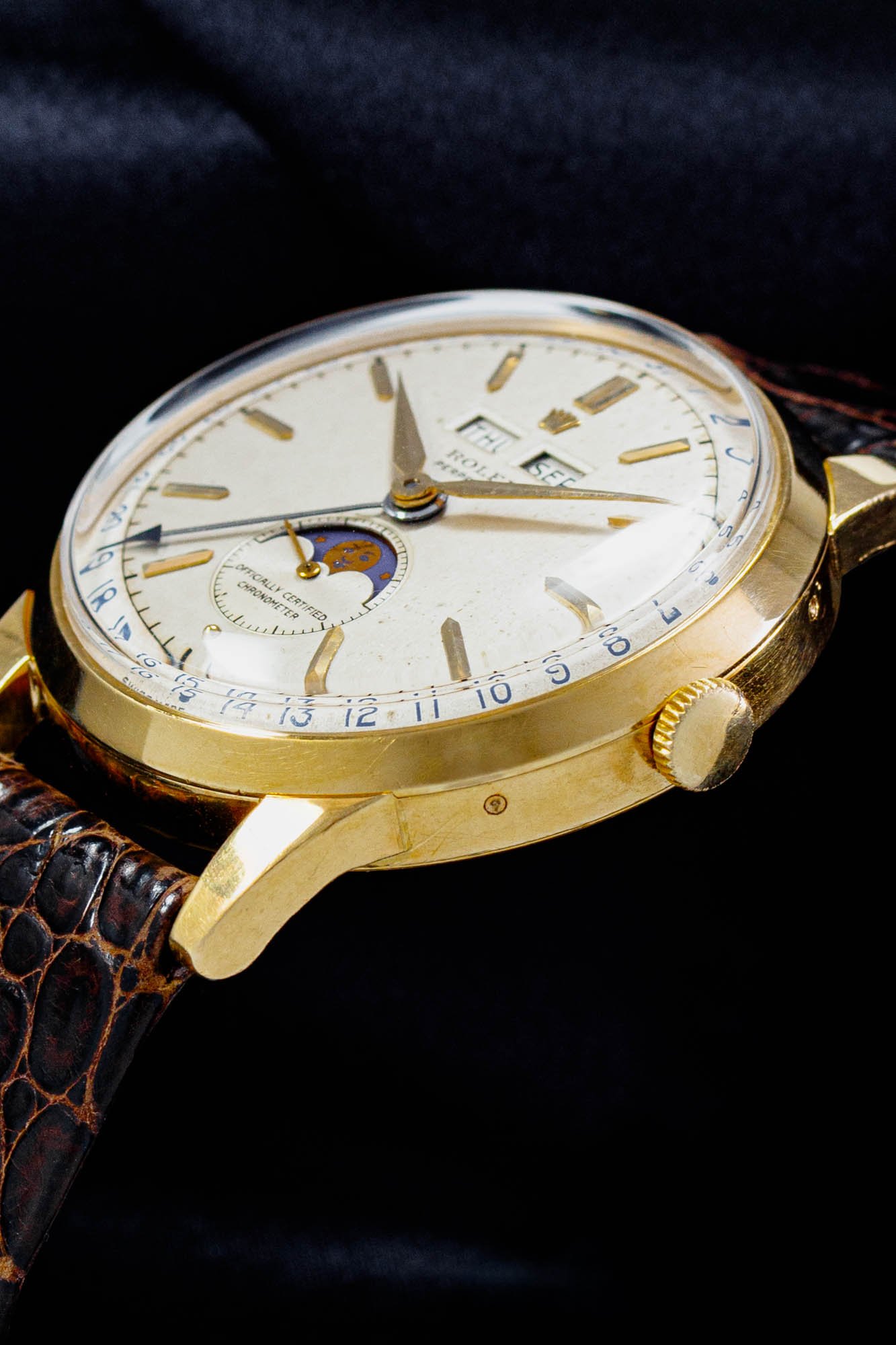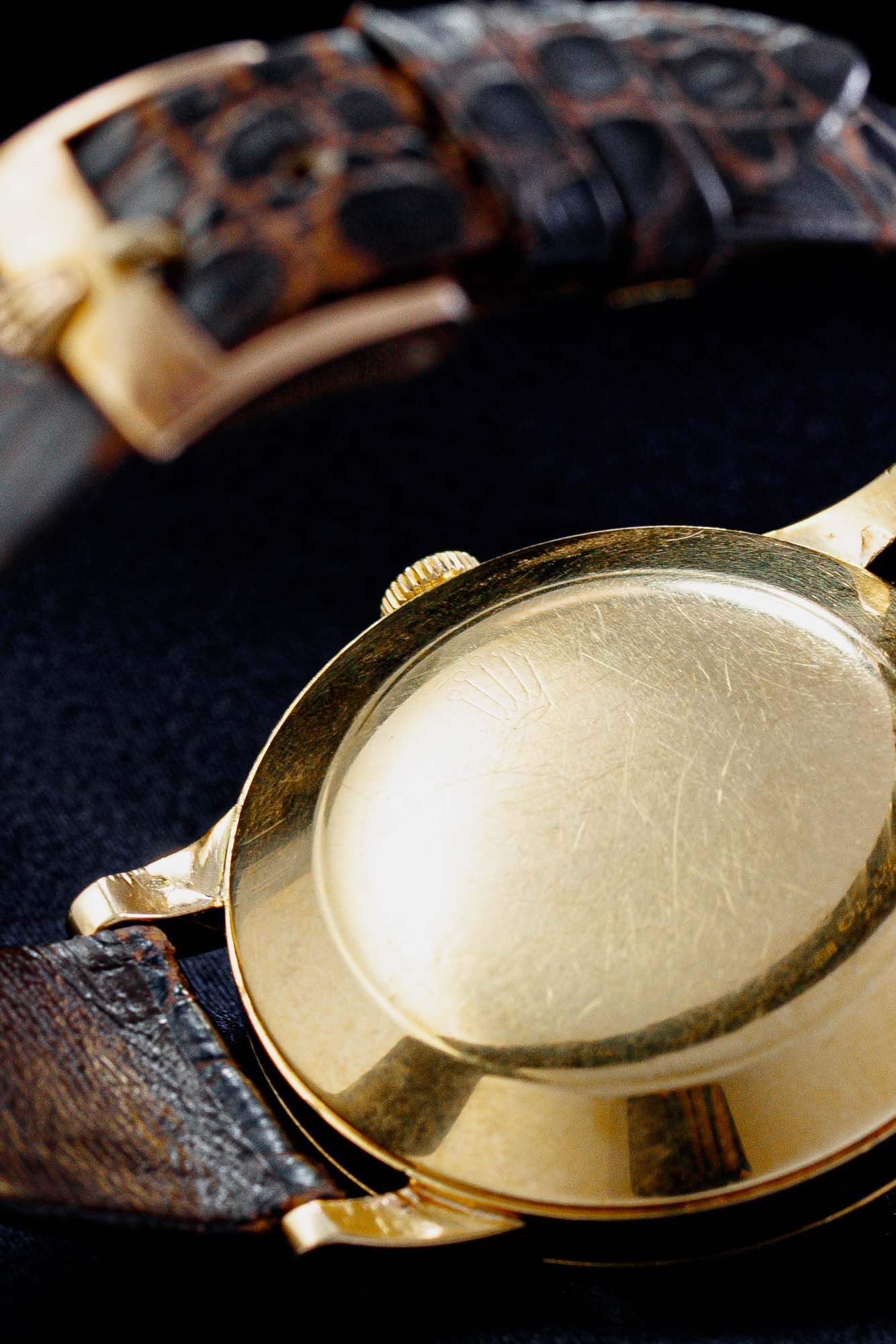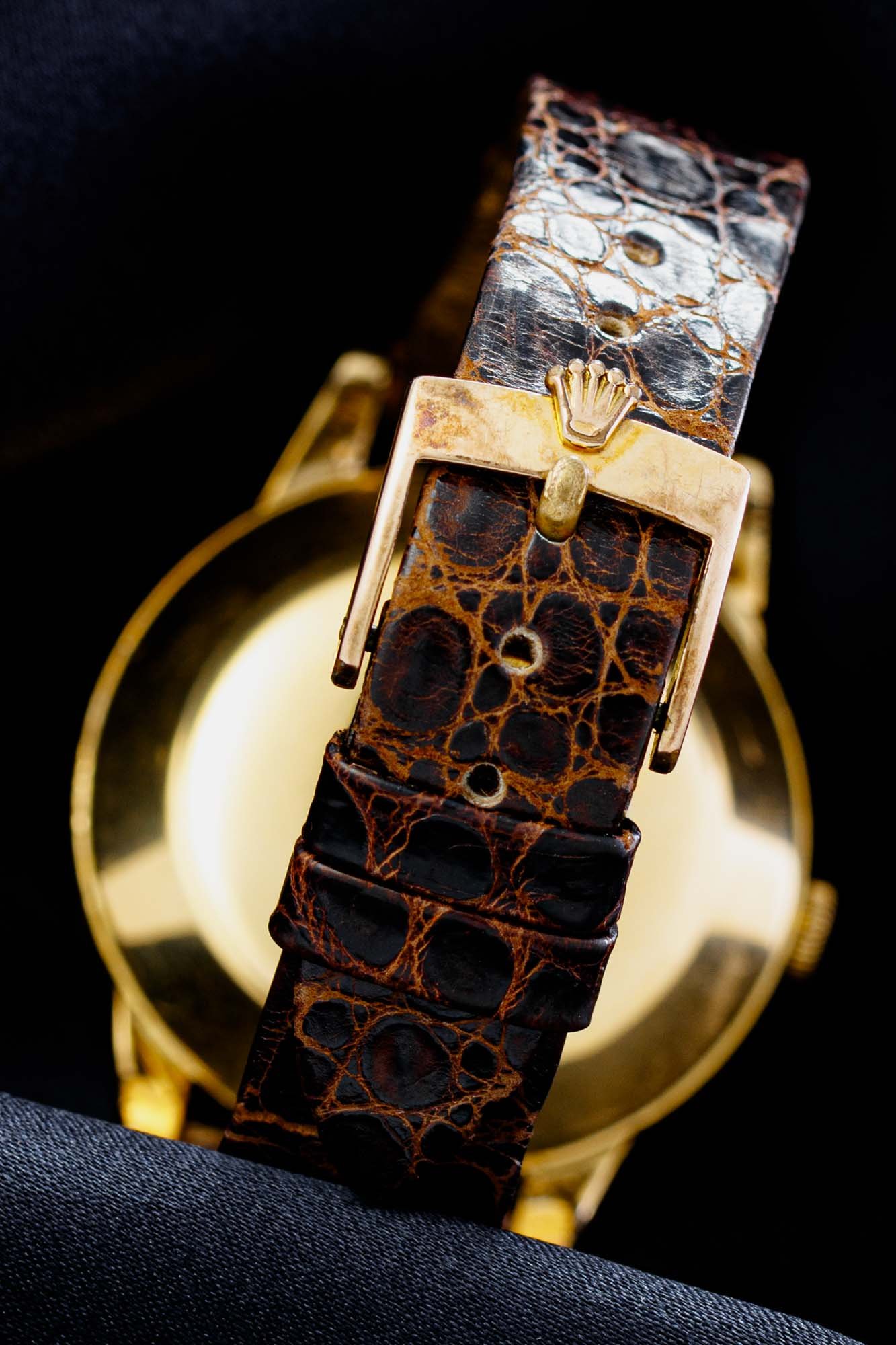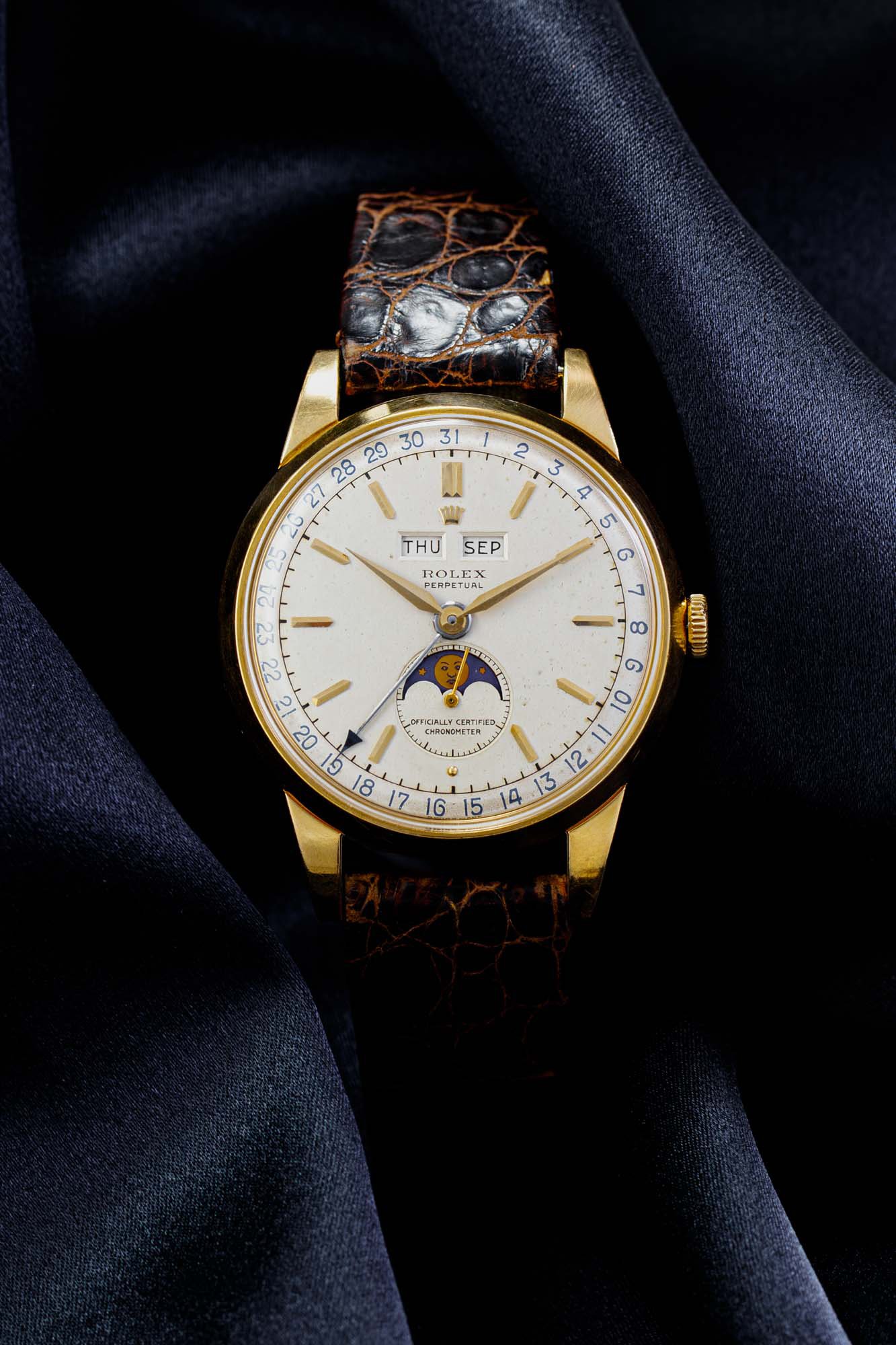What Makes The Rolex Padellone Ref. 8171 So Special?
Last week, a radio station invited me for an interview about a special Rolex Padellone 8171 offered at PAN Amsterdam, a popular art and antiques fair. The hosts asked me what made the watch so special and why it was on offer at the fair.
Rolex Padellone ref. 8171
PAN Amsterdam will run from November 24th to December 1st, but the Rolex Padellone ref. 8171 has already been sold (it was listed for just less than €200,000). It was on offer through Amsterdam Watch Company, which has been an exhibitor at PAN Amsterdam for several years. I was asked if a watch belongs at the PAN fair, but since it is about art and antiques, I guess it makes sense. And since it was sold on the first day, there’s proof that PAN visitors enjoy vintage watches. At least one of them did!
A very low production number for a Rolex watch
The more important question is what makes the Rolex Perpetual “Padellone” 8171 so special. According to the seller and many other websites (which seem to repeat what others have written elsewhere), Rolex only produced 1,000 examples of the ref. 8171. Ben Clymer from Hodinkee claims that the production number was slightly higher at 1,200, 50% of which was for the Rolex ref. 8171 in stainless steel. In the grand scheme of things, whether it’s 1,000 or 1,200, that number is nothing compared to modern production numbers from The Crown in Geneva. It makes Padellone ref. 8171 a very rare Rolex coveted by collectors.
A beautiful face
The appreciation for this watch is about more than just the low production number. It’s also because this is one of the very few Rolex models with a triple calendar and moonphase complication. The other thing is that this Rolex 8171, nicknamed “Padellone” (“frying pan” in Italian), looks different from most Rolex models due to the dial shape and size. When Rolex produced this watch between 1949 and 1952, the Oyster case and even Oyster Datejust cases had already been in production for a while. The non-Oyster 8171 case not only looks different from those but is also relatively large in diameter. The Padellone measures 38mm wide, making it 2mm larger than the Rolex Datejust. Furthermore, it was larger than the other “complicated” Rolex with the triple calendar and moonphase complication at the time, the “Stelline” ref. 6062. Additionally, the latter had an Oyster case, just like the Datejust.
Rolex caliber A295 CPL
Inside the Rolex Padellone ref. 8171 is caliber A295 CPL. This is an 18-jewel self-winding movement with day, date, month, and moonphase complications. The movement doesn’t have any fine decoration. It looks rather “industrial,” you could say. Therefore, the attractiveness of this watch is in the case, dial, and complication rather than in the movement’s decoration. That said, the Rolex movement is incredibly reliable and a certified chronometer, so it deserves credit.
The Rolex 8171 case and dial
The dial sits in an elegant 38mm case and has two apertures below 12 o’clock for the day and month, a date scale printed on the perimeter, and a moonphase aperture inside the sub-seconds register at 6 o’clock. The applied gold hour markers are faceted, and above the day and month apertures is an applied Rolex logo. Below the apertures is the Rolex wordmark and “Perpetual,” indicating it houses a self-winding movement. The hour and minute dagger hands are gilt, while the date hand is steel with a blue triangular tip. The small running seconds hand is also gilt. Within the sub-dial is a mention of the movement being an “officially certified chronometer.” Finally, a gold bezel keeps the acrylic crystal in place.
Snap-in case back with (light) engravings
This Rolex Padellone ref. 8171 has a flat and unsigned crown. On each side of the case, there are two micro-pushers to correct the calendar functions. On the snap-in case back, you’ll find two engravings — the Rolex coronet and the individual case number of the watch.
The original alligator strap and Rolex-signed buckle
Amsterdam Watch Company, which sold the watch, says the case is still very thick and sharp. All engravings on the case back are still visible. It’s an easy giveaway of a watch having been worn a lot (or polished too often) if these are hardly visible or even entirely gone. The creamy-looking dial developed a subtle patina, which is visible in the images. This particular Padellone example hails from 1951 and comes on its original 73-year-old alligator strap with a gold-plated Rolex-signed buckle.
The design of this Rolex with a triple calendar and moonphase complication is breathtaking. It’s grail material for many vintage (Rolex) collectors and rightfully so. Together with the 6062 (which had a slightly higher production number), these watches highlight a period long gone at Rolex.
Amsterdam Watch Company informed us that this Rolex Padellone offered at the PAN Amsterdam fair found a new home with a watch collector. Congrats to the new owner!

